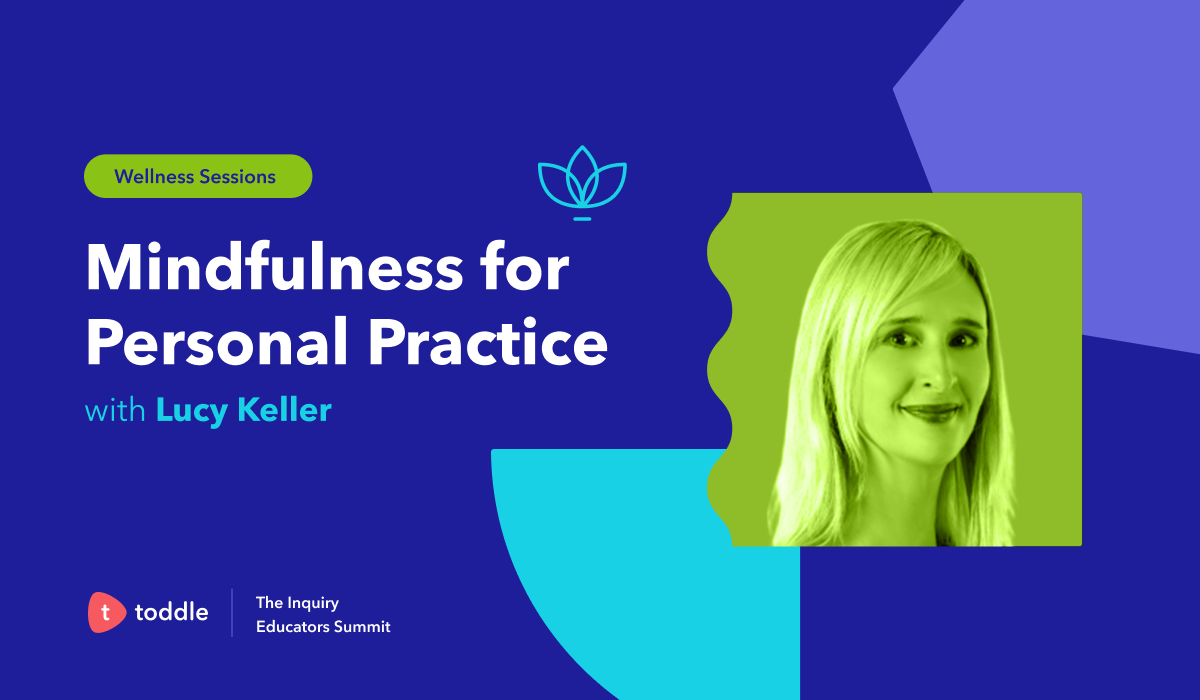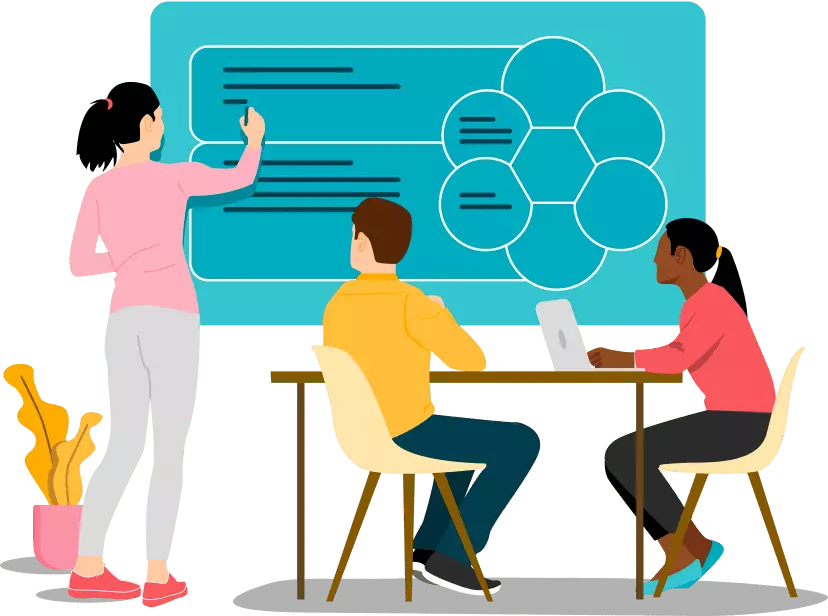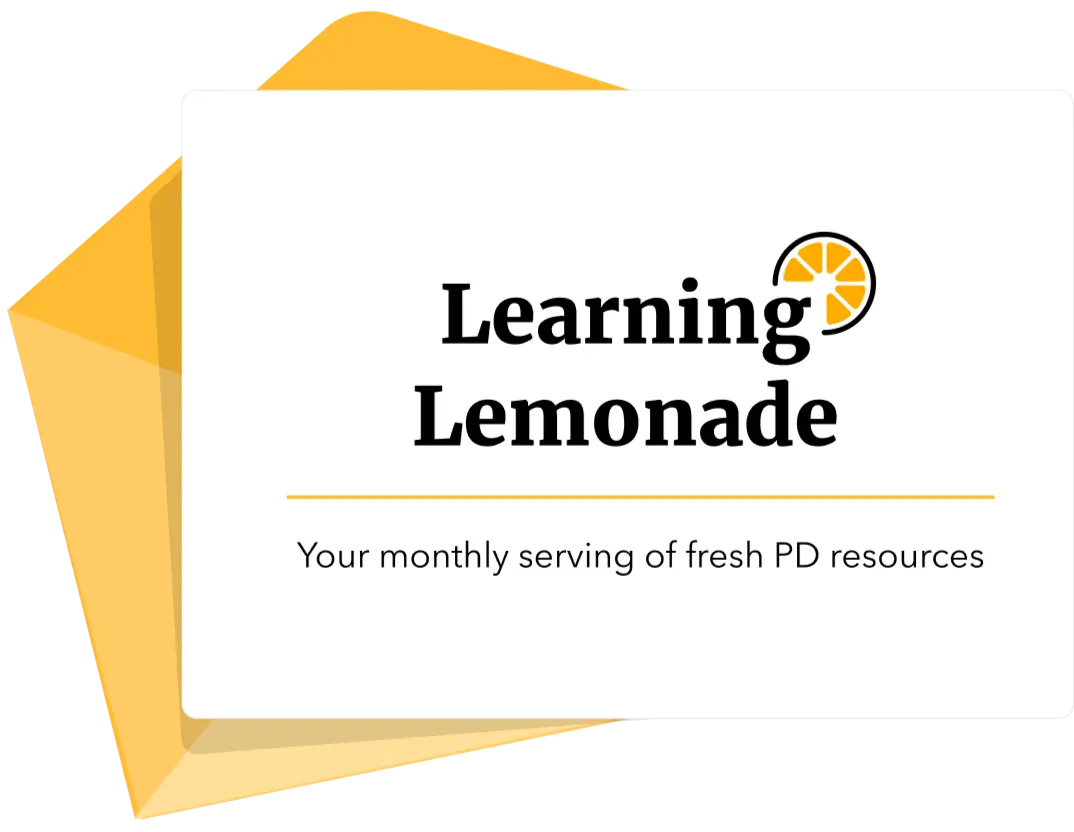Type your school name to search MARTIN GARCIA ST MARY'S INT. COLLEGE 27yrs SmartKids Hydra Brain Development Training Class St Mary's School, Calne International Children's Academy Penrice Academy Dubai GEM Private School The English International School of Padua Corinth High School Wolverhampton Grammar School Wuxi Little School Rasul Al Amin Preparatory School Falcon Cove Middle School Oscar Peterson PS One School Global - Swaffham Campus EL ALSSON NEW GIZA Prek International School of Portland COLEGIO DEL PILAR Raynes Park High School Mike Davis Elementary School Jazari school Manchester Mesivta THE EUROPEAN SCHOOLS OF ALEXANDRIA Stafford International School, Sri Lanka British School of Chicago MEV Koleji Özel Basinköy Ilkokulu ve Ortaokulu The Godolphin and Latymer School October Language School (Manor House) Great Oaks Small School Avenues the World School Amelia Earhart Elem. School Jefferson County International Baccalaureate School Istituto d'Istruzione Superiore 'Nicola Pizi' Saheti Thornton High School Sandnes International School Chauncy School Meredith Middle School Escuela Bilingüe Internacional Olympus International Academy The Manor Academy St. Michaels Junior School Qingdao No.2 Middle School-Pennon Education Wickersley School and Sports College Katedralskolan in Linköping Esbjerg International School Becket Keys Church of England School Mascalls Academy St. Bernard Preschool and After School Care Bina Tunas Bangsa School Sendai Horizon Primary School University lab school École secondaire publique L'Héritage Lilfordia School MONTESSORI COLLEGE Sri KDU International School C-308, Aanjanya Apartment Edupugallu Main Road. SRV International School, Rasipuram Art teacher Changsha WES (Bilingual) Academy Cempaka International School, Damansara Heights Catholic Education Diocese of Parramatta Eva World School SEGFI School “Gloriya” Olifant School Kings Monkton School LEAD BRITISH INTERNATIONAL SCHOOL IDABAN Daegu Joong Ang Middle School DJAMS Alternative Curriculum Liceo Statale Piero Calamandrei Gems aMERICAN ACADEMY Blythe Bridge High School and Sixth Form Centre Hucklow Primary School Notre Dame High School Liceo de Monterrey - Centro Educativo Outwood Academy Danum Our Lady Of The Nativity New Castle International School The Indian Public School, Tirupur, Palladam AGORA PORTALS INTERNATIONAL SCHOOL The Odyssey Institute for Advanced and International Studies Suzhou No.3 High School Brockton High School Europa School UK Pechersk School International Peterhouse Boys School ASPAEN GIMNASIO CARTAGENA Bredon School Fox Chapel Middle School Sandefjord videregående skole Swans International Sierra Blanca CUBAHIRO INTERNATIONAL SCHOOL Groton Middle School Ewell Castle School Northern Middle School Smt. Sulochanadevi Singhania School Asociación Colegio Americano de Guayaquil Bromsgrove International school, Bangkok, Early Years Campus Kuwait Bilingual School 2 Singapore International Preparatory School SIS PREP - Ahmedabad Mary Hogan Elementary School Rufus King International Middle School Internation College-IC Prendergast School Preschool/Summerhill International School Mahatma Gandhi International School Gokkusagi Educational Institutions-Beylikduzu Istanbul The Shri Ram Academy D-Prep Bluecoat Academies Trust Cooperativa de Enseñanza San Cernin Corporación Cultural Colegio Aleman de Cali Sekolah Menengah Kebangsaan Dato' Sheikh Ahmad International School of Ulm/Neu-Ulm Management GmbH Colegio San Ignacio, Cordoba, Argentina MARTIN BUBER Highworth Grammar School Petit-Collège GIIS Tokyo Doukas School Alpha Cambridge School Copol Putnam Valley High School Occupational therapy clinic Monte Vista Christian Hanover High School West Broward Academy Nova International Schools - Skopje, Macedonia Brittons Academy Toddler's Den Hyderabad American International School of Bolivia APL Global School International School of Latvia Kelmscott School Wisdom School Rudolf Steiner Schule Oberaargau, Langenthal Colegio Bilingue Julio Verne Showa Kodomoen Adams Elementary School Tariq Bin Ziad Chelsea Independent College Ltd English Modern School Heights High School (formerly J.H. Reagan HS) John Leggott Sixth Form College Kido Istituto Istruzione Superiore 'Andrea Bafile' Global System of Integrated Studies Vaels International School, Injambakkam Sias international school Kindergarten srl Keystone international Schools ens New Oriental Academy High School Qingdao Yusr International Schools International School Suva St. George's The British International School Munich Akshar Arbol International school The Malling School Roberto Clemente Community Academy Lwis Istanbul International School Sydney Catholic Schools Northallerton School & Sixth Form College Harris City Academy Crystal Palace Benenden School Brighter futures for children École secondaire JeanneMance, Drummondville, Canada Zion Academy Ash Green School Tynwald High School President J.E.A Mills Basic School Jeddah Private International School Ecobeasts International School Venice Colegio de Alto Rendimiento de Ancash Trio World Academy Lighthouse Learning Center MANDATE PRIVATE SCHOOLS Acıbadem Schools Kharisma Bangsa Four Corners Upper School Oakridge International Schools DE LA SALLE UNIVERSITY - MANILA Cambridge Sheila Tarr Academy of International Studies The Stephen Perse Foundation FORSAN BRITISH SCHOOL Playmatepreschool International School Wassenaar Qingdao Younger Cambridge Education Centre Jackson County High School Scholastica School DR NERMIEN ISMAIL LANGUAGE SCHOOLS Divine Childrens Place International School Empangeni Pre Primary Sherborne Qatar Stormont House School Xi'An Hanova International School SUNRISE SCHOOL Niraj International School South Side High School, Fort Wayne Liceo Scientifico Linguistico Scienze Umane 'Immanuel Kant' Hagley Catholic High School A.J. WILD INST OF ADV STUDIES Lecole British Council, Johannesburg Stuart Elementary School King Community Learning Center MAHARAT SUPER GLOBAL BRITISH INTER. SCH. The Westwood School Prince Andrew High School DOMINION CHRISTIAN ACADEMY Frazier International Magnet School St Peters School Barcelona Shenfield High School Delhi Public Primary School Uplift Luna Preparatory SilverOaks international school CORDOBA ACADEMIA ARGUELLO Nantucket Lighthouse School Bolton Academy KV Zürich Horizon High School School Of Scholars,Wardha Kitengela International School Victoria Kindergarten Bakaiya Thakur School Podar International School, Thane Private Primary School no 97 Crescendo HELP International School Federal Hill Preparatory School Idrak Lyceum Himalayan Whitehouse World School The Metropolitan Learning Center Interdistrict Magnet School Avenues SEK Ciudalcampo International School Colegio de Alto Rendimiento de Lambayeque BRITISH NIGERIAN ACADEMY Am Sternenwinkel Pearling Season International School Al-Gharafa Shanghai United International School - Pudong Campus Alma Mater School International European School Warsaw Montgomery High School Quartz Hill High School Sacred Heart Pre-school St. Aldhelm's Academy Berta Palacios Elementary International School Of Ulm/Neu-Ulm Management GmbH Silveroaks Hub International school, Bangalore Societe Ideale Plus S.A.R.L Graceland Day Care SquareOne Early Learning Center MAJESTY INTERNATIONAL SCHOOL Lalaji Memorial Omega International School Acorns International School (Ais) SSTC Institute P P Savani Cambridge International School MMI preschool Thomas Jefferson High School, Virginia Axe Valley Academy COLEGIO RIO BRANCO CAMPINAS Swaminarayan Academy KIS Canadian International School Of Hefei Brent International School - Baguio Shanghai Community International School BRITISH CITY COLLEGE PECHS Girl's School New Vision International School Giza New Directions Unidad Educativa Particular Politécnico Copol FUTURE VANGUARD INT. SCHOOL (GIRLS) Privatna osnovna škola Harfa - Private Primary School Harfa Tenzile Erdogan Kiz Imam Hatip Lisesi École Secondaire Cavelier-De LaSalle School of International Education, BFSU Freelancer School of Early Learning Colegio Ramón Y Cajal Kofu Nishi High School International School Of Western Australia Sir William Romney's School SmartOz Kidz Beaconhouse School System Potohar Campus Ashton International College Ballito (Pty) Ltd North London Collegiate School Dubai Learning Tree Early Education Center Europa School Uk Etonhouse International School Orchard Sha Tin Junior School Kinston High School Canadian School Leon Graciela Garcia Elementary School King's College Bangkok Cois Santa Fe High School O Castro British International school Madison Chihuahua PYP 1 and 2/ The Codrington School I.E.S. Castilla La Piccola Scuola Italiana San Francisco Sacred Heart College Geelong Colegio Saint Francis mid Springwood High School Academy The Telford Langley School High Meadows School Preschools Veterans Park Academy For The Arts Antonine Sisters School (Hazmieh-Jamhour) Sutton House Academy Academie de la capitale Institución Educativa Privada Lord Byron English International School Of Bratislava Liceo Statale Farnesina Futura Schools Kindred Nurseries French School of Nairobi Holy Trinity Catholic School Coal Clough Academy CGK International School Kamiloʻiki Elementary School Pipkin Middle School South City International School alameda international school American International School of Bucharest Funful Bilingual School Omololu International School, Inc. Singapore Sports School Judson STEAM Academy Roscoe Wilson Elementary School Zhuji Hailiang Foreign Language High School Co.,Ltd United Nations International School- Hanoi San Antonio De Padua London International Academy École secondaire catholique Renaissance Cornerstone Schools Of Alabama Nord Anglia International School Hong Kong Calvary preschool Oberoi International school Ozel Kocaeli Marmara Koleji Anadolu Lisesi Delhi Public school sam paul educational trust Colégio Objetivo Camboinhas Eastbury Community School Academic Achievement Open School Forest School Singapore Foothill High School The John Fisher School UWC Maastricht Metta School Gimnazija Crnjanski Daegu Samyoung Elementary School Northfleet Technology College Happy Primary School Rainbow room Northolt High School Reqelford International School Windermere Preparatory School ADHWAA AL HEDAYA SCHOOLS (BOYS) James Campbell High School King Edward's School Witley Lycee Pierre de Coubertin Institute for Developing Laboratory Education Jim Hill High School Mount Litera Zee School, Amritsar Pristini École secondaire Guillaume-Couture HKA The London Oratory School Taaleem GIS Sir John Nelthorpe School Primary MRIS CHARMWOOD Giis - Pg Smart Campus CfBT - Advice & Guidance HMP/YOI Feltham NIST international school Sunway International Sunway, Sunway Iskandar Aspaen Gimnasio Iragua Escola da A.P.E.L. Collège Et Lycée Saint-Charles International School of Poznan Hatchlings Educare Vis Malta Richmond Park Academy Joel C. Harris Middle School Ascension Academy ECLE Bear Valley International School SFUSD MPIC Pan-Asia International School Agoura High School Lady Lumley's School Rawlins Community College Durham School for Girls Doha OMBROSA, Lycée Multilingue de Lyon Plumbreed School International School Of Gdansk Lord Wandsworth College Kunskapsskolan Dongguan Guang Zheng Preparatory School International Section Tonlew International Kindergarten Dauntsey's School Emirates International School Meadows Colegio Internacional De México The International School Of Port Of Spain UTC South Durham Ningbo Xiaoshi High School West Broward High School Suzhou Innovation Academy II Liceum Ogólnoksztalcace im. Stefana Batorego Islands International School Willis A. Sutton Middle School THE NAOWA COLLEGE ABUJA The International School of Azerbaijan (TISA) Growrnamet school Jbcn International school Liceo Scientifico Angelo Messedaglia Woodfield School Indian School Al Ghubra LaSalle Community Comprehensive High School Colegio San Ignacio Jesuitas Surabaya Grammar School Primary Eyfs Artal preparatory School Tall Pines School Legae English Medium School IE Pedro Ruiz Gallo Colegio Isaac Rabin Sunway College Johore Baru International School in Novie Veshki Kgaswe International School Ralph Thoresby School Bavarian International School International Academy Of Denver At Harrington Il Istituto Comprensivo Nocera Inferiore Nilüfer Anadolu İmam Hatip Lisesi DPSG Palam Vihar TAKORADI INTERNATIONAL SCHOOL The Brakenhale School I I S S Antonio Pesenti Pimpala Kindergarten Notre Dame Preparatory School and Marist Academy Kristiansand International School Colegio San Ignacio, Austrias, Spain BUENOS AIRES COLEGIO ESQUIU Beecher Hills Elementary School James S. Rickards Middle School Stuttgart International School Tehran International School January 2023, Khadija Kazi Ali Memorial High School Flagstaff Unified School District Externato Carvalho Araujo Safir Dr. Pablo Perez Elementary School Dpsg International Al Faris International School Mesaieed International School Suzhou Wuzhong Xipu Affiliated School Oriah Private School Banbury & Bicester College part of Activate Learning Colegio Manuel Peleteiro Peking University Experimental School (Jiaxing) Herbert Cambridge Elementary British Council, Chongqing Pinole Valley High School Juan Carlos British International School, Ho Chi Minh City Vale School Muthaiga Sekolah Pelita Harapan, Lippo Village Grade 5 / Chiang Kai Shek College Pensacola High School The Global School ALMAHARAT INTERNATIONAL SCHOOL Bridge Centre Sheikh Zayed International Academy Islamabad Helen C. Peirce School of International Studies École De L'Équinoxe Sutton Tuition and Reintegration Service Holmberg Schule Primary School Kocho Racin Whittier-Wainwright VICENTE LOPEZ ST GREGORY'S COLLEGE British Council, Abuja John F. Kennedy High School, California Care R Us John McGlashan College Stratford School Academy Sanatan School Bharatpur Jumping Beans Sceptre College Central Park Elementary School ACCESS HIGH SCHOOL Asahijuku Secondary School Acklam Grange School Kidsstar School El Shaddai Christian School G2 / LANCASTER Makini Ngong Road Academy Antietam Elementary School Dominican Convent High School, Bulawayo Princess Margaret School Nile International school Thuringia International School Lighthouse American School grayslake central École Secondaire Polyvalente De L'Ancienne-Lorette École Secondaire Publique L'Héritage Sphere International School _ preschool Ashoka Group of Schools Ressu Comprehensive School Whittier International Elementary School Midvale Middle School Victoria International School Albssam Bombay Cambridge International School, Andheri (East) Košice International School Cologne International School La Salle Brothers Pakistan Groupe Scolaire International Les Nouvelles Générations International school of Astana Regnum Christi Schools Spain Internationales Gymnasium Reinsdorf On maternity leave CALCUTTA INTERNATIONAL SCHOOL Flying Start Brain land academy LEBANESE INTERNATIONAL SCHOOL DECROLY AMERICANO Dar es Salaam International Academy International School Eastern Seaboard Zengcheng Experimental School attached to Guangwai Jurong Country Garden School Andrew Carnegie Elementary School Al-Rafidain International Schools Clearwater Central Catholic High School Little Lever School Harmony Early Learning MEF Schools of Turkey Stantonbury International School Monmouth School for Girls Sackville School Liceo Classico Quinto Orazio Flacco Flacco Bari COLEGIO ALAUDA Sejong Academy Richland Northeast High School Goldridge College Tarek bin Ziyed International School Samuel Clemens High School North Huddersfield Trust School Integration Xxi Century International School Colegio Marista Paranaense St Louis School ISLA Rdfz King'S College Hangzhou Enter CIC ÖZEL ARI ANADOLU LİSESİ Surbiton High School Mount Washington School The Gulf English School The Gateshead Cheder Ltd Brightland School not currently in a school Dprep International School Liceo Classico S.M. Legnani Saronno Beanstalk Academy Haidian EtonHouse International School, Suzhou Nil The WASP Centre Maktab Rendah Sains MARA Kuala Klawang AIC WC Elementary EAL Programme Anasazi Elementary Frensham Heights TKK BPK Penabur Bandung Phorms Bilingual Gymnasium Ras Al Khaimah Academy Qatar Academy Al Khor The Abbey School BANGLADESH INTERNATIONAL SCHOOL (BOYS) Bromley Beacon Academy MANARAT JEDDAH INT'L SCHOOL (GIRLS) Mps Shenzhen Foreign Languages Gba Academy Academy of Richmond County MONTE GRANDE ST MARK'S COLLEGE Courtney House Learning Centre JBCN International School Edify School Bengaluru The Cambridge High School Abu Dhabi Sanko Schools Balmoral Ridgeway Elementary Studenterkurset Og Kostskolen I Sonderjylland Summerhill School Hethersett Academy DON BOSCO VITTHAYA SCHOOL Sisq Claires Court Schools Roots Millennium Schools, One World Campus The Montessori School of Mallorca Brookside Middle School Orchard Grove Public School Pinar Elementary Tiffin School Nord Anglia International School, Dublin Nanchang No.3 Middle School Harris Academy Morden Greenland Public School Daventry UTC Mougins School Trileaves International School, Rajakilpakkam Wuhan Britain-China School Bear Park Herne Bay BRIDGEWATER INTERNATIONAL ACADEMY PVT.LT Global Community Charter School Niceville High School Elmhurst Ballet School MODERN EDUCATION SCHOOL JINLING HIGH SCHOOL ACIBADEM OKULLARI Ningbo Zhicheng School Malden Oaks Fort Lauderdale High School Quesnel School District Western Hills High School Bodmin College Alsahwa Schools, Muscat Roundhay School MECANO KINDERGARTEN Abina Gurung Madison International School Riam Hill International Secondary School Resource Academia Shaheen Campus S Chand Group Matija Gubec International School Bradford School École secondaire catholique Sainte-Trinité School Name Escuela Técnica N°24 D.E. 17- Defensa de Buenos Aires Belleview Middle School The Duston School The International School Of Vietnam I.E.S. Juan de la Cierva y Codorníu The Folkestone School For Girls Melly&Me fdc Beijing City International School (BCIS) Future Pioneers Private School LEAD CITY HIGH SCHOOL Army Public School & College Highfields School Rougemont School Withington Girls' School My home lab for kids The Yellow Bridge Mander Portman Woodward Ltd Shohei Junior and Senior High School Ruimsig Academy Hellenic American Educational Foundation Wenzhou Foreign Language School Bel Aire Park Preschool to K/Harrisburg Academy Happy Kids International School UM Kinderfield and Highfield School Bekasi Tender Scholars Castle Melwood Elementary School Freeport Schools - Ypj Tembagapura Ludoteca British International School Riyadh LOMAS DE ZAMORA LOMAS HIGH SCHOOL Goshen High School Optimist The Magna Carta School VILAC INTERNATIONAL SCHOOL Stella Maris Jesuitinas Customs Public School System SMART VILLAGE SCHOOLS - KIPLING The Grange Academy Cs Academy St Lawrence College Wekiva High School Duval Charter School At Mandarin HATTEMER Seven Isles International School Portales Colegio Williams Unidad San Jerónimo Ark Putney Academy Bishopstrow College Forest Park Elementary School Prywatne Liceum Ogólnokształcące im. Melchiora Wańkowicza Holy Cross Lutheran School Canadian International School - Vietnam Liceo Classico Statale ''Giovanni Berchet'' مدارس جدة الخاصة العالمية Edgbaston High School for Girls Victor Central High School St John Plessington Catholic College Churchill Academy & Sixth Form Shiv Nadar School Noida Haileybury Newlands ELC CABRERA ST FRANCIS XAVIER'S COLL Radhwa International School - American Section ECE/Beacon School Delhi Public School Biratnagar SALLING EFTERSKOLE Newcastle-Under-Lyme School Purcell Marian High School Hialeah Gardens Senior High School Hurtwood House Sunbeam Mughalsarai Uplift Education Sandia High School Teesside High School STRONG TOWER ACADEMY Mashrek International school PYP/Çanakkale College West End Middle Prep Oak Park Middle School EARJ Chong Qing Cambridge International Centre St. Bartholomew's School SAIS Breckenridge Elementary School Lavern Gaynor Elementary School Galileo Magnet High School Immaculate Heart Catholic Primary School Stetson University Wellingborough School KINGSFIELD COLLEGE KIPP University Prep Castle Rock Elementary School ESF International Kindergarten (Tsing Yi) AUSTRALIAN INTERNATIONAL SCHOOL DHAKA Hillcrest High School, Texas Hautlieu School The Exam House/Bright Young Things Cumbres School Future World School DHA Lahore Ilford County High School The American School Of Campinas Nextgen International School Findley Elementary The Thetford Academy Hefei Run'an Boarding School Bukit Sunrise School (BSS) Macduff Nursery Holland Park School Lambeth Academy Alverta B. Gray Schultz Middle School French American International School of Boca Raton Heritage International Xperiential Learning Liceo Scientifico Camillo Cavour ABA Global School COLEGIO NUEVA INGLATERRA-NEW ENGLAND SCH Brighton College Abu Dhabi West Mecklenburg High School Belvedere International School Thomas Jefferson High School, Washington Nalanda International School Mueller College The Warren School Tianjin Experimental High School International Community School of Abidjan Royal High School Unacco School Cohen International School COLEGIO SAN ESTEBAN DOME INTERNATIONAL SCHOOL (GIRLS) Tutskills Thorpe St Andrew School and Sixth Form Canadian international school of Guangzhou Newton British Academy Carpenter Elementary Deutsche Schule London Personal Tuition Centre WYCHERLEY INTERNATIONAL SCHOOL Shiloh Middle School Hillcrest School Crawford International Pre School Ruimsig GEMS Winchester School, Fujairah, UAE The International School of Bangalore Victoria (Homantin) Int'L Nursery & Kindergarten Monte Vista Christian School New World Private School Kindergarten/American International School of Guangzhou SSFBC: the High School Affiliated To Shaanxi Normal University Uplands LAHORE GRAMMAR SCHOOL, MIDDLE SECTION FOR GIRLS The Ramsey Academy, Halstead Brixham Community College The Bishop Bell Church of England School VILLAGE MONTESSORI SCHOOL Australian International Academy Caroline Springs Campus Iii Liceum Ogólnokształcące, Gdynia KRISBETHEL COLLEGE Educación infantil de 0-5 años. Colegio Grazalema-Guadalete Raffles Christian School Bilingual European School Pathways Noida LEVINE ACADEMY Daqing No.1 Middle School Vista Magnet Middle School Tenby International School, Setia Eco Gardens British School of Amsterdam Roxboro Elementary School isk Jfk American School Of Querétaro Incredible Kids Watford Grammar School For Girls Colegio Aleman Chicureo SpA Playful learning centre Crawford international benmore Enko Waca International School Rasbihari International School Dpirs Jain Bharati Mrigavati Vidyalaya Headstart kuri campus Silveroaks international school, Whitefield, bangalore Symbiosis International School Monona Grove Nursery School International School of Kazan EGYPT INTEGRATED SCHOOL The International School of Gabon Ruban Vert King Heights Academy Iqra University School System Stansford international school Daly College Indore girassol Wiwat Wittaya School Skegness Grammar School CARDINAL NEWMAN COLLEGE The Gaudium School,Kollur Little Sun School AKS LYTHAM GREEN VALLEY SCHOOL École secondaire Gaétan Gervais Cleveland High School Sunway International School Okan Koleji St Michael's CE High School HAUNA CHRISTIAN COLLEGE EtonHouse International School, Suzhou Billabong High International School Ruzawi School International School Of Athens Pfc Robert P. Hernandez Middle School International School Of Hellerup West Boca Raton Community High School Colegio Alexander Bain Irapuato Colégio Anchieta (Anchietinha - Bela Vista) AL ORUBA INTERNATIONAL SCHOOLS Bright Academy, Texas Pace Modern British School Harold E. Winkler Middle School Nanjing Foreign Language School Huaian Campus Brady Bunch Early Learning Dr Pillai Global Academy Yuce Schools The Gera School Demetra Jones SANATAN HIGH SCHOOL Dibber (early education company) British Council, Beijing Julio Ernesto Indus International School THE CITY SCHOOL DHA CAMPUS, LAHORE Vista High School Colegio Internacional Los Cañaverales Zürich International School International School of Lusaka INTERSKOLEN Lincoln Center Elementary School H.A.E.F. Psychico College Elementary School Sabin World Elementary Dulwich International High School Zhuhai NANJING DONGSHAN FOREIGN LANGUAGE SCHOOL Telopea Park School / Lycée Franco-Australien de Canberra La Scuola d'Italia Guglielmo Marconi Beijing Enlighten School J. L. Everhart Elementary Anglo American School, Cartago, Costa Rica Scarisbrick Hall School Colegio Alemán de Guadalajara, A. C. Infiniti School Falconer School ST JOHN'S HIGH SCHOOL I.E.S. Martínez Montañés American Community School Beirut SHANGHAI GUANGHUA COLLEGE YANGPU CAMPUS Churchill Community College Mody International School Ramsey Middle School IES Los Molinos Grande Prairie Composite High School Millbrook High School, New York Newport Mill Middle School Colegio Brains MUSAEUS COLLEGE EF International Academy (UK) Ltd The Perse School Singapore Ida B. Wells Preparatory Academy School Tunku Putra-HELP School Abu Hureira Academy Sunshine Worldwide School, Old Goa SAINT CHARLES' COLLEGE Pine Ridge Middle School St Peter's School, Cambridge International School Of Geneva - Campus Des Nations Colegio Internacional Rudolf Steiner St Paul's Co-educational College McGavock High School Sir William Ramsay School Liceo scientifico 'Evangelista Torricelli' ISHCMC Sun Valley Community School Jayshree Periwal international school Achieve Xiamen International School Chokmah International School Lahore Grammar School Township Gimnazija Novo mesto Dunn Elementary School An IB World School We have Toddlers (2 years old), Early Years 1 (3 years old), Early Years 2 (4 years old), Silver Fern International School San Silvestre School Asociacion Civil Ecole Jeannine Manuel, Lille The Courtyard International School Of Tervuren Shrine Vailankanni Global School, T.Nagar BJ SMIC SCHOOL AICJ Junior and Senior High School Senpaq'cin School - Osoyoos Indian Band Namsung Elementary School Bense Primary School Shanghai Victoria Kindergarten (Xuhui) 4 years Supported Recruitment Mater Salvatoris TECHY CONSULT Garstang St Thomas School Nusery Van Duyn Elementary School Year 2 Piedmont Open Middle School Gitanjali Group of Schools Avondale Elementary School Hiranandani Upscale School (HUS) SMART KIDZ INTERNATIONAL SCHOOL Sanur Independent School WEST MILLS BRITISH SCHOOL Rickmansworth School Khadija Kazi Ali Memorial High school International School of Vietnam 20 Escola Internacional de Alphaville Karlskrona Internationella Grundskola, Karlskrona, Sweden Longview Isd Raffles world Academy Golestan St. Catherine's Moorlands School Story Forest Villa Devoto School Empresa de Aluminios Mecánicos Granville T. Woods Treetops ECC INSTITUT SABADELL ANTONIADIS INTERNATIONAL SCHOOL The Whitstable School Relief teacher Fairmont Private Schools The Sunflower School Foundree Preschool and Daycare Lexington Elementary School, South Carolina Bilkent Laboratory & International School Orchid Global Learning Academy Little Tinkers Day Care Limited Nauset Regional High School Özel Antalya Toplum Koleji ilk ve Ortaokulu HAMILTON GIRLS' HIGH SCHOOL Mott Hall Bronx High School Hong Kong Examinations and Assessment Authority Austin Academy For Excellence/Garland High School Good Will Children Private School Istituto Villa Flaminia B. D. Somani School Uplift Meridian Preparatory Newlands Academy Fundación Colegio Americano de Puebla City of London School Newington College - Lindfield Colegio Alemán Córdoba Al Andalus Private Schools Crans-Montana International School Fazlani L’Academie Globale Liceo Federico Froebel de Oaxaca S.C. Tk/Cypress International School of Ouagadougou Wings School Notts JUILLIARD ACADEMY The Legacy School Globally Reconnect Ltd École secondaire JeanneMance, Montreal, Canada St. Thomas's International School British International School, Abu Dhabi Les Petits Polyglottes Liceo de Atenas Martha Mirambell Umaña Isa International School Of Guangzhou Egyptian International School In Marage. Pueblo West High School Xavier Fazlani L'Academie Globale San Basilio School ICS Paris International School EYP Upper Canada College Villaggio Scolastico 'M. Montessori' Sarwar Institute Of Professional Studies Victoria Belcher Kindergarten New Hampton School International School of Brno St Michael's Catholic College Tenby Schools Setia Eco Gardens British School Of Monteria International school Zurich North Eyres Monsell Preschool THE BRITISH INTER. SCHOOL MADINATY You're Invited Children's Center Hong Kong Academy Villiers School BCIS Phuket James B. McPherson Elementary School Lincoln Avenue Academy Prior Park College Fearnhill School Stansford international higher secondary school Northampton High School Lighthouse American Schoool JCS Initiative Ea Murchison Middle School Camerado Springs Middle School Emerald Kiddies Howard County Infants and Toddlers Program Al-Mahad Al-Islami St John's Wood Academy da Vinci Community School Indus International School Hyderabad Star International School Kids Country IES FRANCES DE ARANDA Al - Rayan International School Garden Hills Elementary School Britannia International School Guangzhou International School Of Lyon HAVENPOINT HIGH SCHOOL Paragon International School The Northstar School Greenglade Elementary School Madison International School Campus Country-Mérida Sekolah Nusa Alam DRA.LAURA ROTTER HERNANDEZ Academy for Discovery at Lakewood Candiidus International School Pine View Middle School ENTRE RIOS COLEGIO SAN ANTONIO Winston Churchill Middle School United World College Marston Delhi Public School Ankara University Development Foundation Schools Athénée de Luxembourg Melba Copland Secondary College Queen Elizabeth Humanities College Wesley School Jianggan Campus Ringwood Norcross High School St. Brendan’s School Robinson School KAUST St. Joseph's Institution Brookhouse School student teacher Pailan World School S t Eskils Gymnasium Aylesford School - Sports College The City School Parco Chapter Baysgarth School Ionios School GESS - Preschool DelSesto Middle School GIU INTERNATIONAL CHRISTIAN ACADEMY Budding Minds International School Preschool/ St Mary’s International Christian School of Vienna SAN ANTONIO DE PADUA SARMIENTO SCHOOL LEGACY HIGH SCHOOL Ashoka Global Academy Fairview International School Subang Renaissance Charter School At Hunters Creek Beaconhouse school NAS Suzhou, Xiangcheng BRITISH INT. SCH. OF AL KHOBAR (GIRLS) The Learning Centre School Girls Preparatory School St George Madrid Haberdashers' Boys' School Rato Bangala School Creative Kids Inclusive Early Childhood Care, Development Centre Fundación Colegio Americano de Quito Tsinglan School Shireland Collegiate Academy Rainham Mark Grammar School Adamas International School Becquerel Istituto Champagnat Silver Oaks International School Visakhapatnam West Kirby Grammar School UWC East Africa IES Miguel Catalán Saint George's College North Delhi WOrld Public School Watford Grammar School For Boys All Hallows RC High School TOP RANK INTELLECTUAL ACADEMY Preshil Kindergarten GEMS International School, Metropark International School Breda The Creator International School IES La Flota St Charles Catholic Sixth Form College Escola Americana de Campinas (American School of Campinas) Leo Baeck Unidad Educacional Alberto Einstein Cascade View Elementary DePaul College Prep Istituto Statale don Milani London Prime Tuition Ltd Booker T. Washington High School The International School Stuttgart, Sindelfingen Campus Kuwait billingual Deutsche Schule Managua / Colegio Alemán Nicaragüense Valley International School Norrviken Utbildning Ab (Dibber International Sollentuna) Percy Julian Middle School Lansdowne Elementary School Streatham and Clapham High School West Bay Elementary CDI St. Julian's School Mahindra International School Etonhouse International School Thomson Al Ain English Speaking School ICS Milan ( Ludum SRL) Kanakia Kids,Mira Road Statefields School, Inc, Broadmeadow Montessori Children's House Prudence School Straits International School Rawang Loreto Toorak Rogers International School Gulf Middle School MANARAT EL EMAN INTERNATIONAL SCHOOL École élémentaire publique Michaëlle-Jean Sir Fleming College The Unicorn School SEDBOT ELEMENTARY SCHOOL North Chadderton School TIPS Strathcona Elementary Shiv Nadar School Gurgaon Pakefield High School Instituto de Educación Secundaria Son Pacs International School Of Central Switzerland Ag Sahodaya Convent Depalpur Colegio de Bagaces I SLO Jam Saheba Digvijay Sinhji IB 1531 UPAEP Schools Christian Ebinger Elementary School SMP-SMA Semesta David Starr Jordan High School Nord Anglia School Ningbo Fenghua Wakefield Girls' High School Les Alzines Hindustan International School, Guindy Aarhus Gymnasium-Tilst Therfield School Reddam Umhlanga Christ Nagar International School, Kowdiar ISTEK Private Ulugbey Schools Toad Hall Day Nursery British Council, Harare Monarch High School Etu King's Kindergarten of Wuhan Beaconhouse Model Town Özel Egeberk Anaokulu Mar Athanasius International School, Kothamangalam Craig Kielburger Secondary School International School of Lyon Brilliant Stars George School Liceo Scientifico Statale L. Respighi Central Elementary School Trac Becker School École secondaire Jacques-Rousseau Istituto di Cultura e di Lingue Marcelline Panyadee, the British International School of Samui Bina Bangsa School - KJ Primary Mesa Public Schools Instituto Olinca Altavista Montessori School JEDDAH AL-WADI INT SCHOOL (GIRLS) Erika j glazer Stratford College London Unidad Educativa Particular Isaac Newton I.I.S. G.A. Pischedda Bosa RIS.AE West Millbrook Magnet Middle School AWAEL ALMAMLAKAH INT'L SCHOOL (BOYS) Anton Bruckner International School Madison Meadows Middle School St. Wilfrid's Catholic School Brooklyn Museum Bristol Technology & Engineering Academy Shiv Nadar School , gurgaon Crofton School Red House International School Queen Elizabeth's Academy International School Of Monterey Headstart School F-6 I.T.E.S. Angelo Fraccacreta Lori Adamson Family Child Care Home McNally High School R. E. Good Elementary Parkdale Collegiate Institute elc International School, Cyberjaya Campus German International School Sharjah DPS International School Singapore Carol Morgan School Samara Medical Technical Lyceum Ey coordinator The City School International Zhejiang University Canadian International School Preston Hollow Elementary MANOR HOUSE SCHOOL Sawgrass Springs Middle School St Anselms Catholic School Shanghai World Foreign Language International School St. Timothy'S School West End State School Clearpoint Elementary School Silver Oaks International School Bangalore Cultural Arts Academy Charter School at Spring Creek Sunrise School Bilkent Erzurum Laboratory Schooltt International School of Portland/ 4 years Old Palace Of John Whitgift School Anwatin Middle School Beis Ruchel Girls' School The Arnewood School Escuela Ideo MEADOWLANDS SCHOOL Newport Harbor High School Northfleet School For Girls Lahore Grammar School Увекинд Sheikh Zayed International Academy-Islamabad Chiway Repton High School Xiamen Satree Phuket School Aditya Birla World Academy Colegio Hispano Britanico Creative School RUM INTERNATIONAL SCHOOL Les petits rayons de soleil King Abdulaziz School Seminole High School International School Of Bergen GULF INTERNATIONAL SCHOOL (BOYS) Juntou International School of Experimental Education ERUDITE CREST COLLEGE Oakridge International School Bachupally ,Hyderabad Redcol Ips Macedonia British Council, Dubai Tilatá Hephzibah Elementary School Shenley Brook End School The Indian Public School (IB) Singapore School, Semarang Delhi Private School International Haydon School Mountainside Middle School Cogdel Cranleigh School Changsha Kai Early Years EARLY HEIGHTS COLLEGE Manchester Senior Girls School Pre-reception teacher The City School - Bahria Campus Welch Middle School SMM Sacred Heart R C Secondary School WESTRIDGE SCHOOL FOR GIRLS INC Convent of Jesus & Mary Language College The Gandhi Memorial Intercontinental School PECULIAR INTERNATIONAL SCHOOL Canterbury Elementary School All Saints Episcopal Day School Dr. Orlando Edreira Academy, School 26 AlFARIS International School King's School St Paul's Academy Langley Grammar School Denbigh High School Newton International School - Lagoon Campus Al Manahel International School Bisnu Sharma Garden City British School La Scuola Walter Johnson Academy of International Studies École secondaire Serge -Bouchard JORDAN DE LA SALLE COLLEGE Rockford High School Northwood College For Girls GDST Bridgwater College Academy Escola Suíço Brasileira Rio de Janeiro by SIS Swiss International Schools do Bra Basic Academy of International Studies Education Toddlers Den Institut d'Educació Secundària Josep Lladonosa Memminger Elementary School Li Po Chun United World College of Hong Kong Kantonsschule Wettingen WESTERFIELD COLLEGE Country Garden Silver Beach School FUNTAJ INTERNATIONAL SCHOOL, ABUJA Heart Academy UNIVERSITY PREPARATORY TUTORIALS Avalon International School Central Foundation Girls' School Jankidevi Public School The International School of Toulouse Colegio Bilingüe Carson de Cd. Delicias Olympic Heights Community High School The Learner George Washington High School, Illinois La Côte International School WINCHESTER BRITISH INTERNATIONAL SCHOOL Winpenny School Patrick Henry High School Yimisa Preschool Brain land Academy King Edward's School, Witley Klaipėdos licėjus Upton Hall School FCJ J. W. Mitchell High School Nord Anglia International School of Rotterdam The Pupil Saveetha Eco School Sebastian River Middle School HEERBEECK COLLEGE INTERNATIONAL INDEPENDENT SCHOOL 2 Hartsdown Academy South Hampstead High School Granite Hills High School Kingsway Park High School Wentworth High School Yew Chung International School - Hong Kong Parkside Academy Tecnológico De Apizaco Richard J. Bailey Elementary School Carrollton High School Al Sadiq Islamic English School Burnt Mill Academy John Lyon School Moor House School & College Unity Braxton Middle School Asker International School Colegio Laureles Chiapas Walderslade Girls' School Head Start School System Waad Academy EtonHouse International School, Dongguan THE ROYAL BRITISH INTERNATIONAL SCHOOL Newport High School Liceo Carlo Botta Shanghai Baoshan World Foreign Language School The Swedish School Society in London Mary maina Emerald Campus Dublin City Schools The Rodillian Academy Tripoli Evangelical school English Preschool Discovery Garth Hill College Sekolah Dasar Islam Kreatif Mutiara Anak Sholeh Jacobsville Elementary WHITEPLAINS BRITISH SCHOOL Escuela Campo Alegre Wathmi Fernando Chartered Architect Ashton International College Coolamon School of Early Learning Kansai International Academy Colegio Bom Jesus Alphaville St Albans Tuition Centre Ipswich High School Bombay International school Khaled International School Roding Valley High School American School of Quito (Ecuador) Mountain Island Lake Academy StillWaters Educamp Academy Inc,. Advanced Learning Schools Anglo Singapore International School Tall Pines School, Sheikhupura Vientiane international school Manado Independent School Chelmsford County High School for Girls Bouddha International School Princess Margaret International School Back Of The Yards College Preparatory High School Veer Bhagat Singh International School St. Francis Episcopal Wentworth Learning Centre Childcare Passmores Academy Premier American School Colegio Mayor De Los Andes Tree Tops Primary Academy The Holy Family School MARYLAND COMPREHENSIVE SECONDARY SCHOOL Matsumoto Kokusai High School St Macartans Parish LOS PROCERES Modern Public School Shalimar Bagh Delhi Early years/ The Vale School Muthaiga Matthews Memorial Child Development Center Melbourn Village College Sutton Community Academy Crossway Montessori School Sekolah Cikal Surabaya KR mangalam World School greater noida Ozel Namik Altas Koleji ICS Paris The International School Of Florence Alma Bryant High School Speciss College Bulawayo Campus Strong John Thomson Elementary School Middlesex University Midvale Elementary School Gymnazium Srobarova 1 Kosice COLEGIO EL TORREON Shanghai Singapore International School Mary McLeod Bethune Day Academy PCS ESTELA EBBEKE MEMORIAL COLLEGE Pre-K II (4-5) at St. Francis Episcopal School in Houston Castle View School Academy Trust Linz International School Auhof (LISA) Dillon Valley Elementary School State Public Official Enterprise Nursery garden №81 Asemgul Gulf International Private Academy Gimnasio Moderno Collegiate International School Horizon International School Japan Crawford International Pre School La Lucia Klaipeda Lyceum Smart Schools The Vels Academy, Punjailakkapuram Söderportgymnasiet British School of Guangzhou Chettinad Vidyashram Lotus School École secondaire des Pionniers Colegio Logos International SAKKARA LANGUAGE SCHOOL The King's School in Macclesfield Invento school BRITISH INTERNATIONAL SCHOOL GHANA International School of Beijing Surya Varsani Academy Divine children place Peo Primary School - ERROR Sekolah Pelita Bangsa Liceo Scientifico Statale 'N. Copernico' Itqan Integrated School Shaker Heights High School Multnomah Education Service District Bedford High School Birkenhead High School Academy Institut Montana Zugerberg BANFIELD BALMORAL COLLEGE Mef Kindergarten Cloverleaf Elementary School American International School in Egypt West Campus Sacajawea Middle School SPK PRIBADI Bandung Kids United ELC Leigh Academies Trust Athena Global School, Chennai Aac The Frances Bardsley Academy for Girls Ilg School (International Learning Group) THE NEXT GEN. SCH. AL DAAYEN CAMPUS 6 months King's College London Mathematics School Our Own English High School Dresden International School gGmbH Canyon Springs High School Springstead High School Guangzhou Huamei International School OXBRIDGE TUTORIAL COLLEGE, LEKKI CAMPUS Lagoon Park Preschool International School Of Bergamo Al Salam Private School Slindon College One world International school Riyadh FUNDACION COLEGIO MICHAEL HAM MASTER CARE INTERNATIONAL SCHOOL Chaoyang KaiWen Academy Swakeleys School For Girls Inc 6th Form at Swakeleys St. Francis College International School of Dusseldorf Hilton Head Island Middle School Dean Close School, Cheltenham Weschoolonline Robbinsdale Cooper High School Academie Lafayette Alta Vista Elementary School Kinder School KBS - KG department Speciss College Brooklyn Friends School Inicia Educación accadis International School Bad Homburg Hiranandani Foundation School International Academic School of Excellence Fort Dorchester High School Paddock Wood Primary Boston World School, Pune Private High School Gaudium et Studium Sekolah Pelita Harapan Kemang Village Unidad Educativa Bilingue Educamundo Federal College of Education, Abeokuta, Nigeria Yusr International School Makkah Colegio Decroly Americano Le Gymnase Jean Sturm/Lucie Berger The hive early learning centre EISHCMC Hazel Oak School Rahn Ritaj Schulen Kairo COLEGIO ARJI Shanghai World Foreign Language Primary School The Schram Academy, Ayanambakkam Bard International Academy Chengdu Muscat International School Saint Martins Catholic Academy IVY EXPERIMENTAL HIGH SCHOOL Canary The School Tracey'S Elementary School ROWAD ESHBILIA INTERNATIONAL SCHOOLS Stamford High School Chanakya The Global School for Intellectuals UWC in Mostar Morton Jr/Sr High School Carrick AP Academy FAIRVIEW SCHOOL Berkhamsted School Akshar Árbol International School DEEPER LIFE HIGH SCHOOL, BENIN SCPS Manchester International Scchool The Pearl Academy Stanton College Preparatory School Acıbadem School École Oasis Internationale German international school of dallas Chiway-Repton Xm ECIS STRIB IDRAETSEFTERSKOLE International School Of Helsinki Trinity Academy Halifax Sidmouth College James Calvert Spence College Affiliated School of JNU St Peters Academy Colegio Bernardette Romeira Zhuji Ronghuai School International School Of Schaffhausen Academia Naval Almirante Illingworth The Arthur Terry School Austin Elementary Phakalane Secondary School Afa Academy International school Groningen bombay international Western Plains kinder Istituto Gonzaga Sonora High School Al Madina Ain Sebaa Catmose College Pool Academy Istituto Superiore 'Sobrero' Therapy with Rajvi Renaissance School ESCUELA ARGENTINA MODELO Kingston Secondary School Saint Patrick College - Educando S.A. St. Matthew Academy Wilsthorpe Community School International School of Cape Town Babylon International School St. George’s College Lake Forest Hills Elementary School The Aylesbury Vale Academy Temple Emanu-El Ecec reception/ British school of Lomé Holy Family nursery Colegio Bilingüe Madison Bodrum Private Marmara Primary School Aquinas International School Bootham School Saint Gabriel's School Buist Academy For Advanced Studies Paso Verde The Mountbatten School 2 Newtowne school Cambridge, ma Hope Academy Indonesia Father Michael McGivney Catholic Academy Liceo Scientifico Leonardo Da Vinci Early Learning Village School European School Rheinmain Group / International School Rheinmain British International School of Chicago, Lincoln Park Rosewood Elementary International School AB Sabin Wander N Wonder School The Sixth Form College, Farnborough KING'S ANCHOR COLLEGE Sunnyside International School Escuela Internacional Sampedrana ECC Gymnazium a SOS Rokycany Branksome RIMS International School and Junior College, Mumbai Private school Istituto Di Cultura E Di Lingue Marcelline George Washington Academy Istek College École Secondaire Hormisdas-Gamelin NANWAI KING'S COLLEGE SCHOOL Ascot Ocac Suzhou Le Gymnase Jean Sturm/Lucie Berger, Strasbourg, France I.I.S.S. Marco Polo Bari LEONCIOPRADO AISWA Charter Oak International Academy Wauwatosa Catholic Centro Educativo Crecer, A.C. The American School in London Gosfield School Gateshead Jewish Boarding School Repton International School Darul Uloom Islamic High School Annabel C. Perry Pk-8 7SEK AMAI MUGABE SENIOR SCHOOL Moat House School Cornerstone School of Summit Jiangsu Education Association for International Exchange (JEAIE) NotreDame International School LINGFIELD ADVENT HIGH SCHOOL Sawyer Road Elementary School Berlin British School gGmbH EtonHouse International Pre-School at Thao Dien MODERN PUBLIC SCHOOL, SHALIMAR BAGH DELHI The Delta Independent School SingChin Academy Kinder 4 years old st brendan Rundle College Wotton House International School Gloucestershire BINTA INTERNATINOAL SCHOOL valistus international school The North Green School Harrisburg Academy Beis Chinuch Lebonos Girls School Pushpalata British International School, Thiyagaraja Nagar Istituto Tecnico Economico E. Tosi Etonhouse Preschool – Newton Road GRUNDTVIG INTER. SECONDARY SCH., OBA Delano Academy Big Sky High School Poinciana Elementary School The JCB Academy Trust Shue-Medill Middle School Arthur Kramer Elementary IB World School St Swithun's School St. Paul'S Grammar School LYCEUM INTERNATIONAL SCHOOL - WATTALA Canterbury Kids Preschool EtonHouse Malaysia International School Pakistan Embassy College Beijing Odessa High School British council school Ikns The Language Network Reedswood e-act primary academy JNIS Charley’s Place Spicewood Elementary School Ihsan International school Chase High School TSU Brighton Girls GDST Butterflies Early Years Childminding CROWN GLOBAL ACADEMY Oxford High School, GDST International School of Helsinki Capistrano Valley High School The Mac.Robertson Girls’ High School St. Clare's College American Lakes Private Antalya Muratpasa College Istek Baris Schools (İstek Barış Anaokulu Ve İstek Barış İlkokulu) Capilano Elementary Eden Montessori Liceo Classico Statale 'Giacomo Leopardi' The Center for Early Education School BMSS Malet Lambert NAAF HOSPITAL INT'L SCHOOL (GIRLS) Cluny Vidya Nikethan, Salem Colegio La Paz de Chiapas A.C. Thacker Avenue Elementary School For International Studies Lynn-Rose Revere Middle School (Houston Isd) Instituto Kipling de Irapuato, SC O Castro British International School Vigo Thomas Jefferson College Omkar Cambridge International School INTERNATIONAL MAARIF SCHOOLS ERBIL Unidad Educativa Paul Dirac Academia Británica Cuscatleca Pre-nursery Oakridge International School Bachupally Hyderabad SCHOOLSCOMPANY NORTH DEVON ACADEMY International Schol of Paris Weber High School Prekinder/Albania school Assess Education Oasis Academy Hadley Tenby International School Tropicana Aman Northlands A.C.B. Putteridge High School Southeast High School Mayo College Sutton Coldfield Grammar School For Girls IIS Ettore Majorana Torino Liceo scientifico Fatih Bilingual School DAY WATERMAN COLLEGE The International School of Thrissur Blooms 'n Daisies School WeiHai IVY Foreign Language School Little Village Elementary School Gems modern academy American International School Dhaka Bearden Middle School Aoba-Japan Bilingual Preschool - Waseda Nile International College Muruvvet Evyap Schools United Lisbon International School Repton Malaysia Blacon High School East Nashville Magnet Middle School Regents International School Pattaya Roald Amundsen High School Ics Cote D'Azur Snookums Early Learning Center Tranby L'Ecole Our Lady of Good Counsel High School Marshall Middle Magnet School Meadow Green Primary School S Thomas' College Sacred Heart Convent Bestkidz Nursery, Best Education Group Cree Ser Aynor High School Childs Elementary School South Texas ISD World Scholars Mef International School Izmir Educational Consortium OSAO Bina Bangsa School - Bandung Millennium High School RISE International School All Saints CofE Primary School Annunciation Catholic Elementary School Oakwood Middle School Gimnasio los Portales St. Ninian's High School AL-BASSAM SCHOOLS (BOYS) Platinum Preschool Acorn Park School North Fort Myers High School, FL Matshwane Primary School Norwood Elementary School Tarlac State University Global Indian International School Beaconsfield High School Beaconhouse Tipu Sultan Campus International School of Talents – Multicampus Taipei American School Restormel AP Academy St. Georges College North DELTA INTERNATIONAL SCHOOL (BOYS) City International School Basil Wits École publique Renaissance Vibgyor High - Pune S. M. Shetty International School Joshua D. Kershaw Magnet an IB World Elementary School Liceo Scientifico E Linguistico Statale G. Marconi Golborne High School Lincoln High School, Oregon Visionary Plookpanya School Global Indian International School Pte Ltd, Punggol Field Walk, Singapore Cambridge School Robert Lee Stevenson School Sandy Searles Miller Academy for International Studies Ghc Tk-8 PAN-AMERICAN SCHOOL (ECE) Fundación Educacional Santiago College Ens Sharjah International School Of Islamabad Charles E. Bennett Elementary School Eagle Hill School BROOKSTONE SCHOOLS Cypress Lake Middle School NÜN ACADEMY (GIRLS) EASTLANDS INTERNATIONAL SCHOOL Coral Reef High School Velammal Global School Antelope Trails Elementary Liceo Statale Gaetano Salvemini Rockwall-Heath High School Rodborough School ISR International School on the Rhine Braeside High School Nairobi Victoria Bilingual Christian Academy World One School King Henry Viii College The Next Generation School St. Mary's Music School Edinburgh Victorious kidss educares Woodlawn Hills Elementary School The High School at Vancouver Island University Little Lamb Preschool and Childcare Ogre Technical School Beijing National Day School King Edward's School Girls Preparatory Academy at Ferrell Middle Magnet School Colegio Interamericano American School Of Warsaw The indian public school THE SHEPHERD SCHOOL Huda School and Montessori Edgewood High School Cambridge international college Moscow Gymnasium №1409 SNA THE EGYPTIAN BRITISH INTERNAT'L SCHOOL T. G. Barr School Lawrence D. Bell High School Sekolah Alfalah Darussalam Taejon Christian International School Modern Public school AGORA INTERNATIONAL SCHOOL BARCELONA Sullivan Middle School bayside Christian college HPS Aga Khan Academy Queen Elizabeth's Grammar School Sponne School Emirates National Schools Ras Al Khaimah Campus International School Of Nice Wise Indian Academy Caerphilly Community Tuition Osaka Jogakuin Senior High School Nature School at Camp AlbemRle St Joseph's Institution International School Malaysia Digital Private School Ormiston Victory Academy Unidad Educativa Colegio los Arcos Hangzhou Intetnational School Ullens School GREATER GRACE INTERNATIONAL SCHOOL The Sheffield Private School Milford School SISD Dubai Tutors & Exams VERSO Woodhouse Grove School C.E. Mas Camarena Platanos College School of Scholars Yavatmal Brandon School Division PRUDENCE CITY COLLEGE Stay home mom Middleton Technology School EMERALD SCHOOLS Jyväskylän Lyseon Lukio HIGH SCH. AFF. TO SHANGHAI JIAO UNI Cypress Hills Collegiate Preparatory High School Centro Educativo Alexander Bain Irapuato Çanakkale Özel İlkokulu Asia Pacific Fredfort international school Phnom Penh Cambodia Maru A Pula School Wellwood International School PRINCETON COLLEGE Advtech Crawford International School Kenya The Windsor Boys' School The Billericay School AL WAHA INTERNATIONAL SCHOOL (GIRLS) Crimson Anisha Global School Edmonton Catholic Schools Liceo Panamericano DSB International School The Brooklyn Latin School Michael Power - St Joseph High School King Henry VIII School Highlands Institute Ii Secondary School In Bydgoszcz HULL CORDELL Kyungpook National University High School Market Harborough Centre Kuwait Bilingual school Idlewild ASPAEN GIMNASIO ALTA MAR BILINGUE ADANA GUNDOGDU COLLEGE Nueva York Peyton Forest Elementary French-American School of New York The John F. Kennedy The American School of Queretaro Town Centre Private Schools Riverhills Elementary Magnet IB Centro Docente Miravalle ENIS TREASURE SCHOOLS Claremont Fan Court School Licei Dell'Opera S. Alessandro Horizon Primary Chase Grammar School Wimbledon High School (GDST) Kingsgate International School É.S.C. Père-Philippe-Lamarche Liberia Ekhaa Abhay International School Eau Gallie High School Newton Rayzor Elementary School Smriti Academy Redbridge International Academy THE LAGOON SECONDARY SCHOOL Te Kohanga Reo O Otane Colegio Ciudad de Mexico Schools Excelsior Academy Little Ducklings Elementary School The Nature Atelier Weston Collegiate Institute American International school of Budapest King Edward VI Community College MEFIS ISTEK Private Acibadem Schools Assumption College Rayong Oscar Depriest Elementary School Europa School J.T. Hutchinson IB World Middle School Morehead Middle School EARLY LIFE SCHOOLS Lester B. Pearson High School Cairo English School Hangzhou No.4 High School Seeds of Grace Goshen Middle School Hot Springs Junior Academy ISTEK Kemal Atatürk Schools Kindergarten and Primary School Middleton Surabaya Ramco Vidyalaya Sandwell Academy Work Skills Learning Instituto Anglo Britanico infant teacher Girls Global Academy Karugamo English School MSB private School American School of Warsaw K1/ NIVA International St John’s Primary School Buckler's Mead Academy Clinton Hill PS 20 Floyd Central High School Norton Hill School Northwood School Jianye Xie He Cheng Bang Kindergarten NESİBE AYDIN Bracknell and Wokingham College Chipping Norton School Southend YMCA Community School International School Innsbruck John Randolph Tucker High School The Trinity International Alpha International School, Sembakkam Empowering Possibilities International Charter Peshawar Model School, Girls 5 Colegio Europeu Astoria
Please complete this required field.













